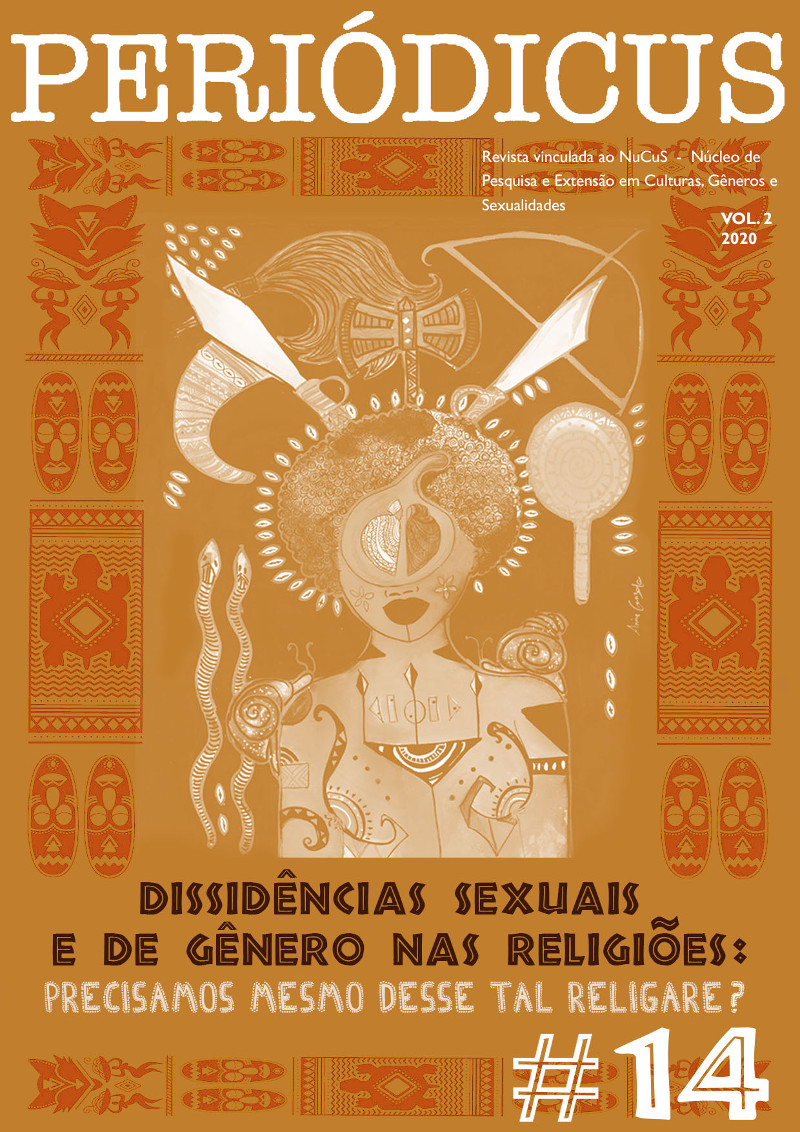“Com quantos quilos de medo se faz uma tradição?”: a heteronormatividade como constituinte das relações socioafetivas e das territorialidades das Repúblicas Masculinas Federais de Ouro Preto, Minas Gerais
DOI:
https://doi.org/10.9771/peri.v2i14.31470Resumo
Em tempos de repressão e limitação de direitos, o presente artigo vem colocar em foco discussões acerca da heteronormatividade no ambiente republicano da tradicional cidade histórica mineira Ouro Preto. A cidade, a casa, a rua não são categorias meramente geofísicas, mas políticas, sociais e afetivas. Nesse sentido, esses espaços carregam uma série de dispositivos normativos morais e sexuais, que pressupõem também a (re)produção da heteronormatividade. Uma república estudantil pode ser hétero? Um espaço de heteronormatividade demarcada? Quais os limites dos acionamentos identitários sexuais desses espaços privados? Como eles são negociados e reafirmados dentro de um contexto urbano e de sociabilidade estudantil? São essas inquietações que, ao longo deste texto, pretendemos discutir e aprofundar. Em um primeiro momento, articulando heteronormatividade e espaço, discutimos a relação entre a ocupação dos espaços, a construção da identidade territorial deles e a produção de territorialidades. Apresentamos, também, em forma de atos, como que a heteronormatividade constitui a sociabilidade dentro das repúblicas.
Downloads
Downloads
Publicado
Como Citar
Edição
Seção
Licença
Copyright (c) 2021 Yuri Alexandre Estevão-Rezende, Marcus Vinicius Pereira das Dores

Este trabalho está licenciado sob uma licença Creative Commons Attribution-NonCommercial 4.0 International License.
Autores que publicam nesta revista concordam com os seguintes termos:
Autores mantêm os direitos autorais e concedem à revista o direito de primeira publicação, com o trabalho simultaneamente licenciado sob Licença Creative Commons Attribution Noncommercial que permite o compartilhamento do trabalho com reconhecimento da autoria e publicação inicial nesta revista, sendo vedado o uso com fins comerciais.
Autores têm autorização para assumir contratos adicionais separadamente, para distribuição não-exclusiva da versão do trabalho publicada nesta revista (ex.: publicar em repositório institucional ou como capítulo de livro), com reconhecimento de autoria e publicação inicial nesta revista.
Autores têm permissão e são estimulados a publicar e distribuir seu trabalho online (ex.: em repositórios institucionais ou na sua página pessoal) a qualquer ponto antes ou durante o processo editorial, já que isso pode gerar alterações produtivas, bem como aumentar o impacto e a citação do trabalho publicado (Veja O Efeito do Acesso Livre).








